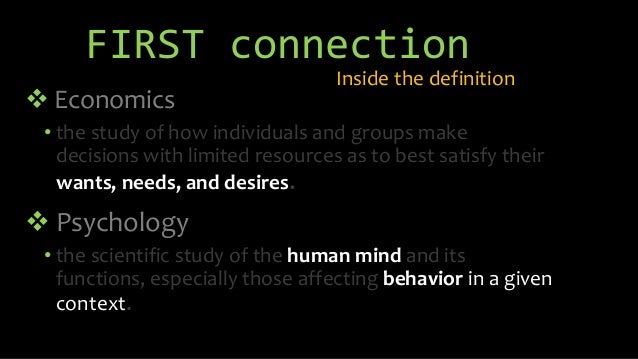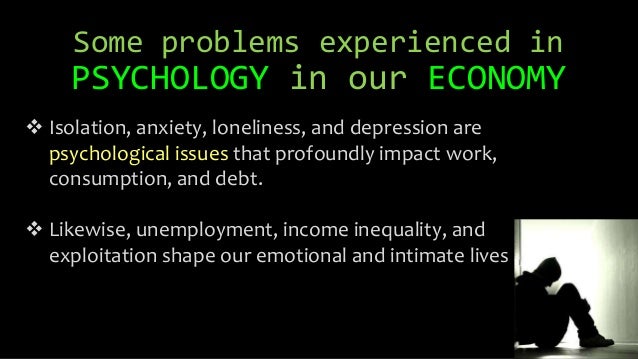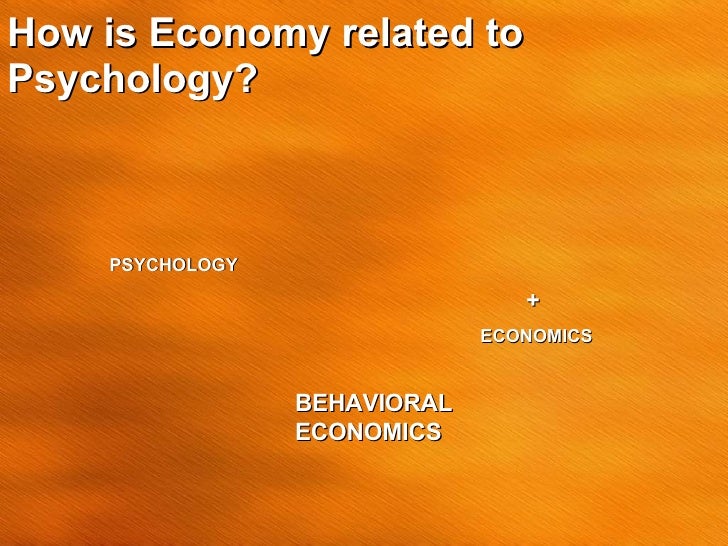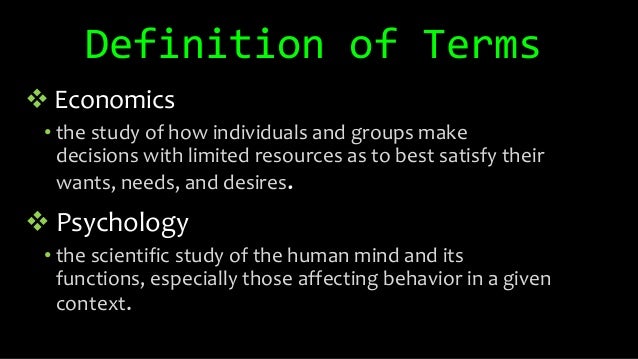
My blog gives all data, facts and statistics about global real politic economic system, factors of production, poverty and inequality. Also I give information about popular hedonic life of human-beings. I believe that economy science must become a holistic social science that includes all multi dimensions of human (body, mind, soul) and to give inspiration (motivation) to become perfect "homo-economicus" generations for the 21th century.
2/26/2018
Misbehaving
![Misbehaving: The Making of Behavioral Economics by [Thaler, Richard H.]](https://images-na.ssl-images-amazon.com/images/I/51dqaYXmQOL.jpg)
Nobel laureate Richard H. Thaler has spent his career studying the radical notion that the central agents in the economy are humans—predictable, error-prone individuals. Misbehaving is his arresting, frequently hilarious account of the struggle to bring an academic discipline back down to earth—and change the way we think about economics, ourselves, and our world.
Traditional economics assumes rational actors. Early in his research, Thaler realized these Spock-like automatons were nothing like real people. Whether buying a clock radio, selling basketball tickets, or applying for a mortgage, we all succumb to biases and make decisions that deviate from the standards of rationality assumed by economists. In other words, we misbehave. More importantly, our misbehavior has serious consequences. Dismissed at first by economists as an amusing sideshow, the study of human miscalculations and their effects on markets now drives efforts to make better decisions in our lives, our businesses, and our governments.
Coupling recent discoveries in human psychology with a practical understanding of incentives and market behavior, Thaler enlightens readers about how to make smarter decisions in an increasingly mystifying world. He reveals how behavioral economic analysis opens up new ways to look at everything from household finance to assigning faculty offices in a new building, to TV game shows, the NFL draft, and businesses like Uber.
Phishing for Phools...
![Phishing for Phools: The Economics of Manipulation and Deception by [Akerlof, George A., Shiller, Robert J.]](https://images-na.ssl-images-amazon.com/images/I/51tkIlY3oqL.jpg)
Ever since Adam Smith, the central teaching of economics has been that free markets provide us with material well-being, as if by an invisible hand. In Phishing for Phools, Nobel Prize–winning economists George Akerlof and Robert Shiller deliver a fundamental challenge to this insight, arguing that markets harm as well as help us. As long as there is profit to be made, sellers will systematically exploit our psychological weaknesses and our ignorance through manipulation and deception. Rather than being essentially benign and always creating the greater good, markets are inherently filled with tricks and traps and will "phish" us as "phools."
Phishing for Phools therefore strikes a radically new direction in economics, based on the intuitive idea that markets both give and take away. Akerlof and Shiller bring this idea to life through dozens of stories that show how phishing affects everyone, in almost every walk of life. We spend our money up to the limit, and then worry about how to pay the next month's bills. The financial system soars, then crashes. We are attracted, more than we know, by advertising. Our political system is distorted by money. We pay too much for gym memberships, cars, houses, and credit cards. Drug companies ingeniously market pharmaceuticals that do us little good, and sometimes are downright dangerous.
Phishing for Phools explores the central role of manipulation and deception in fascinating detail in each of these areas and many more. It thereby explains a paradox: why, at a time when we are better off than ever before in history, all too many of us are leading lives of quiet desperation. At the same time, the book tells stories of individuals who have stood against economic trickery—and how it can be reduced through greater knowledge, reform, and regulation.
Animal Spirits...

The global financial crisis has made it painfully clear that powerful psychological forces are imperiling the wealth of nations today. From blind faith in ever-rising housing prices to plummeting confidence in capital markets, "animal spirits" are driving financial events worldwide. In this book, acclaimed economists George Akerlof and Robert Shiller challenge the economic wisdom that got us into this mess, and put forward a bold new vision that will transform economics and restore prosperity.
Akerlof and Shiller reassert the necessity of an active government role in economic policymaking by recovering the idea of animal spirits, a term John Maynard Keynes used to describe the gloom and despondence that led to the Great Depression and the changing psychology that accompanied recovery. Like Keynes, Akerlof and Shiller know that managing these animal spirits requires the steady hand of government--simply allowing markets to work won't do it. In rebuilding the case for a more robust, behaviorally informed Keynesianism, they detail the most pervasive effects of animal spirits in contemporary economic life--such as confidence, fear, bad faith, corruption, a concern for fairness, and the stories we tell ourselves about our economic fortunes--and show how Reaganomics, Thatcherism, and the rational expectations revolution failed to account for them.
Animal Spirits offers a road map for reversing the financial misfortunes besetting us today. Read it and learn how leaders can channel animal spirits--the powerful forces of human psychology that are afoot in the world economy today. In a new preface, they describe why our economic troubles may linger for some time--unless we are prepared to take further, decisive action.
Dress better, work better?
A number of recent studies suggest that dressing up for work in a suit or blazer could do wonders for an employee’s productivity, whether going into a negotiation, making a sales call or even participating in a video conference with business associates.
Michael W. Kraus, an assistant professor of organizational behavior at the Yale School of Management, co-wrote a study for the Journal of Experimental Psychology in 2014 which showed that clothes with high social status can increase dominance and job performance in “high-stakes” competitive tasks.
Michael W. Kraus, an assistant professor of organizational behavior at the Yale School of Management, co-wrote a study for the Journal of Experimental Psychology in 2014 which showed that clothes with high social status can increase dominance and job performance in “high-stakes” competitive tasks.
By
Ray A. Smith
Feb. 21, 2016 10:05 p.m. ET2/25/2018
How Much You Should Have Saved (by Age)
Retirement Income: the 80% Rule
Most experts say your retirement income should be about 80% of your final pre-retirement salary. That means if you are making $100,000 annually at retirement, you will need income of at least $80,000 per year to have a comfortable lifestyle after leaving the workforce. This amount can be adjusted up or down depending on other sources of income, such as Social Security, pensions and part-time employment, as well as your health and your desired lifestyle.
Total Savings: The 4% Rule
To determine the amount you will need to have saved to generate the retirement income you want, one easy-to-use formula calls for dividing your desired annual retirement income by 4%. To generate the $80,000 cited above, for example, you would need a nest egg at retirement of about $2 million. This assumes a 5% return on investments (after taxes and inflation), no additional retirement income (i.e., Social Security) and a lifestyle similar to the one you would be living at the time you retire.
By Jim Probasco | January 7, 2018 — 12:29 PM EST
Read more: How Much You Should Have Saved (by Age) | Investopedia https://www.investopedia.com/retirement/how-much-you-should-have-saved-age/#ixzz586VHUEP9
Follow us: Investopedia on Facebook
How Central Banks Control the Supply of Money
The quantity of money circulating in an economy affects both micro and macroeconomic trends. At the micro level, a large supply of free and easy money means more personal spending. Individuals also have an easier time getting loans such as personal loans, car loans, or home mortgages.
At the macroeconomic level, the amount of money circulating in an economy affects things like gross domestic product, overall growth, interest rates, and unemployment rates. The central banks tend to control the quantity of money in circulation to achieve economic objectives and affect monetary policy. Through this article, we take a look at some of the common ways that central banks control the quantity of money in circulation.
By Prableen Bajpai, CFA (ICFAI) | Updated May 8, 2017 — 12:58 PM EDTRead more: How Central Banks Control the Supply of Money | Investopedia https://www.investopedia.com/articles/investing/053115/how-central-banks-control-supply-money.asp#ixzz586TOX7ik
Follow us: Investopedia on Facebook
How Bitcoin Works?
Bitcoin is a network that runs on a protocol known as the blockchain. A 2008 paper by a person or people calling themselves Satoshi Nakamoto first described both the blockchain and bitcoin, and for a while the two terms were all but synonymous. The blockchain has since been conceptually divorced from its first application, and thousands of blockchains have been created using similar cryptographic techniques. This history can make the nomenclature confusing. "Blockchain" sometimes refers to the original, bitcoin blockchain; other times it refers to blockchain technology in general, or to any other specific blockchain, such as the one that powers Ethereum.
The basics of blockchain technology are mercifully straightforward. Any given blockchain consists of a single chain of discrete blocks of information, arranged chronologically. In principle this information can be any string of 1s and 0s – emails, contracts, land titles, marriage certificates, bond trades – and this versatility has caught the eye of governments and private corporations. In bitcoin's case, though, the information is mostly transactions.
Bitcoin is really just a list. Person A sent X bitcoin to person B, who sent Y bitcoin to person C, etc. By tallying these transactions up, everyone knows where individual users stand. Another name for a blockchain is a "distributed ledger," which emphasizes the key difference between this technology and a well-kept Word doc. Bitcoin's blockchain is public. Anyone can download it in its entirety or head to any number of sites that parse it. You can see, for example, that 15N3yGu3UFHeyUNdzQ5sS3aRFRzu5Ae7EZ sent 0.01718427 bitcoin to 1JHG2qjdk5Khiq7X5xQrr1wfigepJEK3t on August 14, 2017, between 11:10 and 11:20 a.m. If you were law enforcement or otherwise very sophisticated, you could probably figure out who controlled these addresses (the long strings of numbers and letters). Bitcoin's network is not totally anonymous, in other words, though taking certain precautions can make it very hard to link individuals to transactions.
Read more: How Bitcoin Works | Investopedia https://www.investopedia.com/news/how-bitcoin-works/#ixzz586JJ5q33
Follow us: Investopedia on Facebook
9 Common Effects of Inflation...
1. Erodes Purchasing Power
2. Encourages Spending and Investing
3. Causes More Inflation
4. Raises the Cost of Borrowing
5. Lowers the Cost of Borrowing
6. Reduces Unemployment
7. Increases Growth
8. Reduces Employment and Growth
9. Weakens (or Strengthens) the Currency
Daimler in $2 Bln China Investment With BAIC...
By Reuters | February 25, 2018 — 7:09 AM EST
Read more: Daimler in $2 Bln China Investment With BAIC as Geely Swoops | Investopedia https://www.investopedia.com/partner/reuters/berlin-sees-no-need-act-geelys-purchase-daimler-stake/#ixzz586K9OYIG
Follow us: Investopedia on Facebook
Daimler and its Chinese partner BAIC plan to invest almost $2 billion in a state-of-the-art factory in China, underlining their relationship as rival Geely makes a surprise swoop on the German carmaker.
The two will invest more than 11.9 billion yuan ($1.88 billion) in modernising a plant to build premium Mercedes-Benz cars including electric vehicles, BAIC said in a filing to the Hong Kong Stock Exchange dated Friday and confirmed by Daimler on Sunday.
The chairman of Chinese carmaker Geely said late on Friday he had bought an almost 10 percent stake in Daimler, in a $9 billion bet to access the Mercedes-Benz owner's technology.
The move poses a challenge to Daimler, which as well as its Chinese partnership with BAIC Motor Corporation has an industrial alliance to develop cars and trucks with Renault-Nissan, which owns a 3.1 percent stake in Daimler.
Read more: Daimler in $2 Bln China Investment With BAIC as Geely Swoops | Investopedia https://www.investopedia.com/partner/reuters/berlin-sees-no-need-act-geelys-purchase-daimler-stake/#ixzz586K9OYIG
Follow us: Investopedia on Facebook
What is the 'Intrinsic Value'
The intrinsic value is the actual value of a company or an asset based on an underlying perception of its true value including all aspects of the business, in terms of both tangible and intangible factors. This value may or may not be the same as the current market value. Additionally, intrinsic value is primarily used in options pricing to indicate the amount an option is in the money.
Read more: Intrinsic Value https://www.investopedia.com/terms/i/intrinsicvalue.asp#ixzz586Irm4De
Follow us: Investopedia on Facebook
Read more: Intrinsic Value https://www.investopedia.com/terms/i/intrinsicvalue.asp#ixzz586Irm4De
Follow us: Investopedia on Facebook
2/23/2018
Black Panther
Black Panther' blows past $500 million at the global box office after one week in US theaters...
How Do You Build a Team Culture in a Global Company?
The success or failure of a global organization can come down to how well small groups of people work together. “Teams are core to everything that we do,” said Rajeev Dubey ’82, president of human resources for Mahindra & Mahindra, in an interview with Yale Insights. “We have great respect for individuals, but we believe that ultimately, it is the team that delivers. So we put huge emphasis on being able to work in teams, ability to lead teams, and not so much emphasis on individual brilliance.”
Recent research has shown that teams have a form of collective intelligence, meaning that some perform considerably better than others across a range of tasks. So for a company with thousands of employees combined into innumerable teams, getting improved performance out of those teams can make a huge difference.
RAJEEV DUBEY
What’s the Price of Love?
“From an economic perspective, searching for a partner is just cost-benefit analysis,” Oyer said. “You keep searching until the point where the expected benefits of finding someone better outweigh the costs of looking for that person.”
“A potential partner with too little mate value is an unacceptable long-term partner choice, whereas one with too much mate value might not be attainable or retainable as a long-term mate,” they write. “The image of the ‘ideal’ and ‘attainable’ partner should therefore correspond closely.” In other words, a 7 may look like a perfect 10 to another 7.
To an economist like Oyer, potential mates—as well as jobs—are “differentiated goods.” “No two jobs and no two life partners are the same,” he said. That makes websites that aggregate prospective choices, such as monster.com and match.com in their respective realms, especially useful. By allowing users to narrow their searches before investing time in investigating a position or mate, they save their customers valuable time.
It’s not the language of poets and minstrels, but as Oyer put it: “Why are you single? Loneliness is just romantic unemployment.”
PAUL OYER
“A potential partner with too little mate value is an unacceptable long-term partner choice, whereas one with too much mate value might not be attainable or retainable as a long-term mate,” they write. “The image of the ‘ideal’ and ‘attainable’ partner should therefore correspond closely.” In other words, a 7 may look like a perfect 10 to another 7.
To an economist like Oyer, potential mates—as well as jobs—are “differentiated goods.” “No two jobs and no two life partners are the same,” he said. That makes websites that aggregate prospective choices, such as monster.com and match.com in their respective realms, especially useful. By allowing users to narrow their searches before investing time in investigating a position or mate, they save their customers valuable time.
It’s not the language of poets and minstrels, but as Oyer put it: “Why are you single? Loneliness is just romantic unemployment.”
PAUL OYER
How Do You Plan for Uncertainty?
In a changing global environment, leaders must be able to make decisions about future risks and opportunities despite uncertainty. Kristel Van der Elst ‘02 describes the process of strategic foresight and its value in preparing organizations to be robust whatever the future holds.
KRISTEL VAN DER ELST
In my view, the future is built out of three pieces. It’s what comes from the past—existing trends and established commitments. It’s what comes from the future—new business models, new technologies, or new value systems. And it’s the decisions we make today.
Whether it’s a country, a business, or an individual looking at family and career, foresight is a means to be adaptable and robust in the face of scenarios that might knock you off a path to success. And it’s a means to identify new models that might be opportunities to deliver new value.
Can the Graduation Approach Help to End Extreme Poverty?
An intensive development intervention focused on helping the destitute “graduate” into sustainable livelihoods has shown remarkable promise. Yale’s Tony Sheldon discusses the methodology’s development, extensive evaluation, and future potential.
One effort to tackle the distinct and complex barriers to economic development faced by the “ultra-poor” comes from the Bangladesh-based NGO BRAC, which in 2002 launched an intensive program aimed at addressing extreme poverty. BRAC’s Challenging the Frontiers of Poverty Reduction—Targeting the Ultra Poor (CFPR-TUP) initiative used a carefully sequenced series of interventions to give destitute household the tools and opportunity to make sustainable change. After the program was carried out in hundreds of thousands of households within Bangladesh, rigorous evaluations showed clear and sustained positive impacts on participants’ ability to “graduate” out of extreme poverty into sustainable livelihoods.
TONY SHELDON
One effort to tackle the distinct and complex barriers to economic development faced by the “ultra-poor” comes from the Bangladesh-based NGO BRAC, which in 2002 launched an intensive program aimed at addressing extreme poverty. BRAC’s Challenging the Frontiers of Poverty Reduction—Targeting the Ultra Poor (CFPR-TUP) initiative used a carefully sequenced series of interventions to give destitute household the tools and opportunity to make sustainable change. After the program was carried out in hundreds of thousands of households within Bangladesh, rigorous evaluations showed clear and sustained positive impacts on participants’ ability to “graduate” out of extreme poverty into sustainable livelihoods.
TONY SHELDON
The Peacekeeping Economy
The idea that military strength is virtually synonymous with security is deeply entrenched and widely held. But while the threat or use of military force may sometimes be necessary, it cannot keep us as safe as we would be by building relationships that replace hostility with a sense of mutual purpose and mutual gain. Economic relationships, says Lloyd J. Dumas, can offer a far more effective, and far less costly, means of maintaining security. After defining the right kind of economic relationship—one that is balanced and nonexploitative, emphasizes development, and minimizes environmental damage—Dumas then addresses some practical concerns in establishing and maintaining these relationships. He also considers the practical problems of the transition from military-based security arrangements to "economic peacekeeping," and the effects of demilitarized security on economic development and prosperity.
Lloyd J. Dumas is Professor of Political Economy, Economics and Public Policy at the University of Texas, Dallas. He lives in Carrollton, TX.
yalebooks.yale.edu
Kaydol:
Yorumlar (Atom)
Why the heck is there still an automotive chip shortage?
A side from the raw, human toll, COVID-19 has dramatically changed how we live, from travel and education to the way people work. This ...
-
The beauty of science may be pure and eternal, but the practice of science costs money. And scientists, being human, respond to incentives ...
-
Roubini is one of few economists who predicted the housing bubble crash of 2007-2008. He warned about the crisis in an IMF position paper in...
-
Blockchain technology has the potential to reduce costs, improve product offerings and increase speed for banks, according to the most rec...


